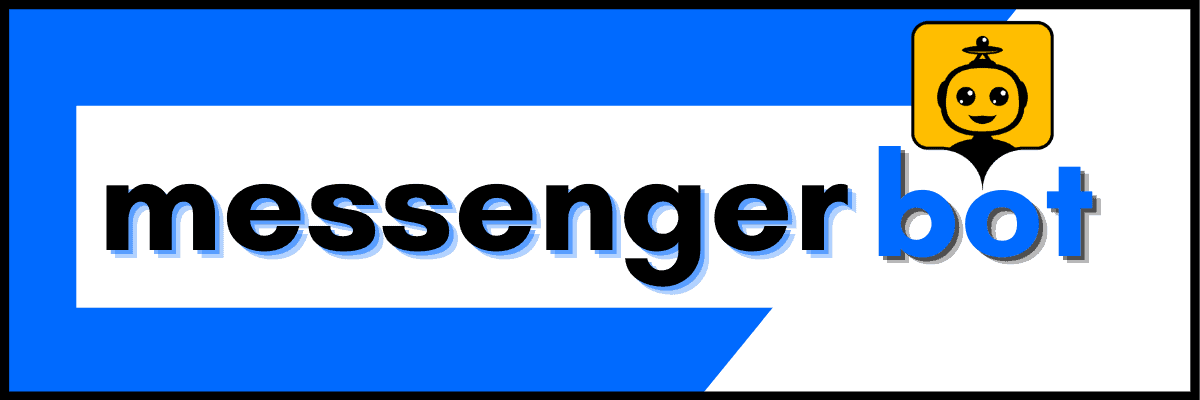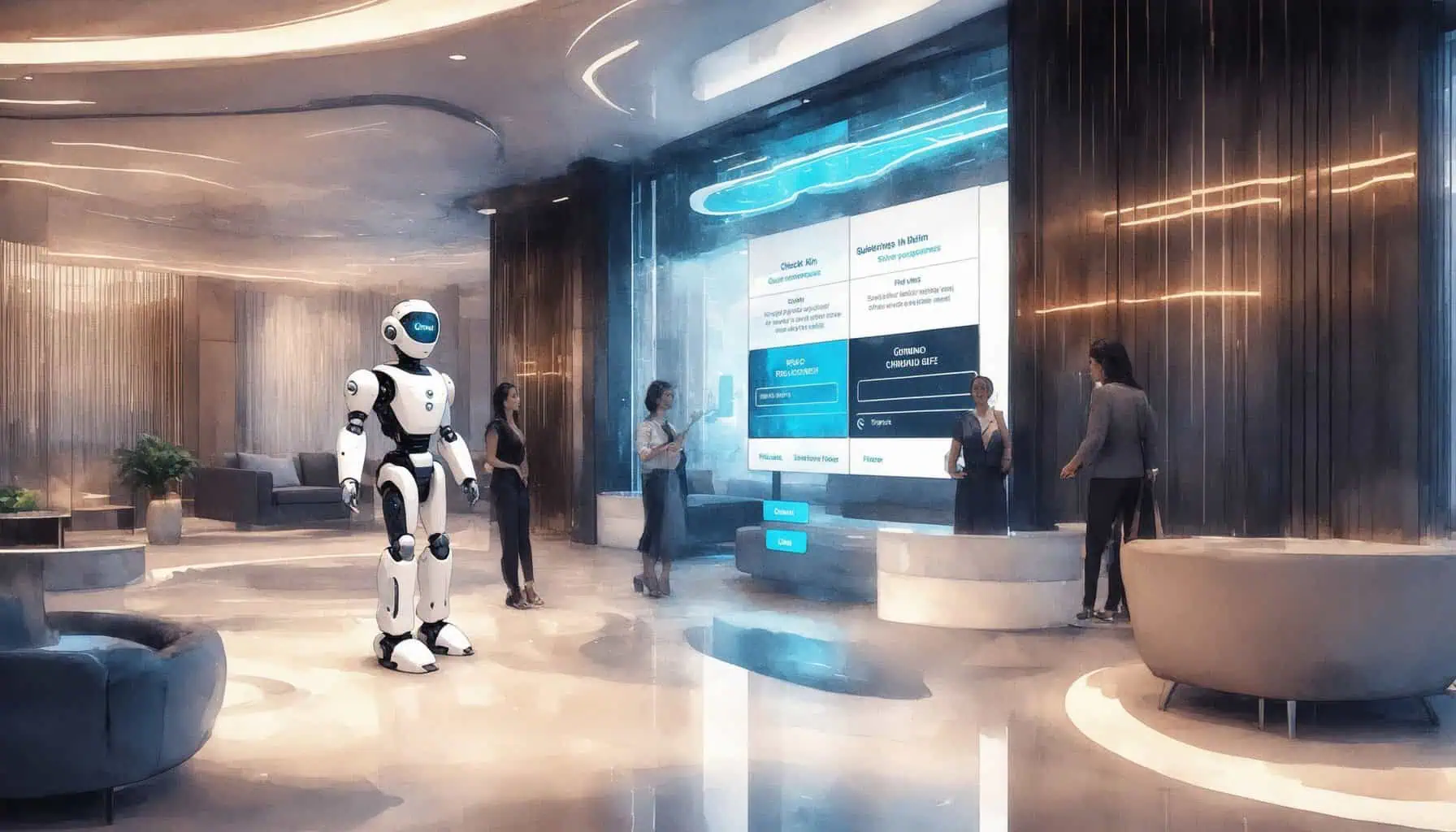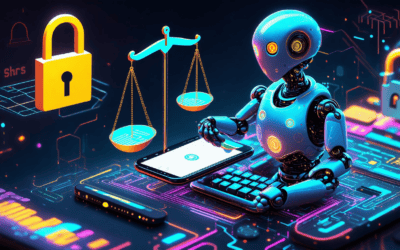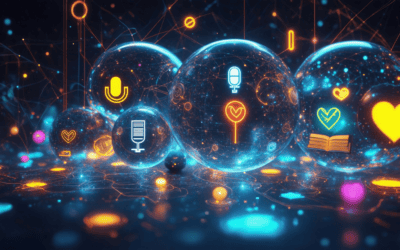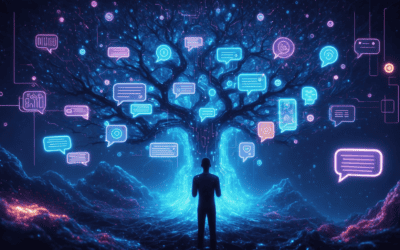Key Takeaways
- Streamlined Operations: Hotel chatbots automate booking and customer inquiries, significantly enhancing operational efficiency.
- 24/7 Customer Support: Providing round-the-clock assistance, chatbots improve guest satisfaction by addressing inquiries anytime.
- Personalized Experience: Advanced AI chatbots analyze guest preferences to offer tailored recommendations, enriching the stay.
- Cost Efficiency: Automating routine tasks with chatbots reduces operational costs, allowing staff to focus on complex guest needs.
- Seamless Integration: Chatbots can be integrated with messaging platforms, enhancing communication and engagement with guests.
- Feedback Collection: Post-stay feedback through chatbots provides valuable insights for continuous improvement in service quality.
In today’s fast-paced hospitality landscape, the integration of technology is not just an option but a necessity for enhancing guest experiences. This article delves into the transformative role of hotel chatbots, showcasing a comprehensive hotel chatbot example that illustrates how these innovative tools streamline operations and elevate service quality. We will explore how hotels utilize chatbots to improve communication and efficiency, providing insights into the best practices and real-world applications. From understanding what a bot in the hotel industry entails to examining the future of hospitality chatbots, this guide will cover essential topics such as the simplification of check-in and check-out processes, the functionality of chatbots for hotels, and the benefits of AI in enhancing guest interactions. Join us as we uncover the myriad ways chatbots for hotels are revolutionizing the hospitality sector, ensuring a seamless and enjoyable experience for every guest.
How do hotels use chatbots?
Hotels utilize chatbots to enhance guest experiences and streamline operations, leveraging artificial intelligence (AI) to facilitate communication and automate various processes. Here’s how they effectively implement chatbots:
- Booking Assistance: Chatbots assist guests in making reservations directly through hotel websites or messaging platforms. They can provide real-time information on room availability, pricing, and special promotions, significantly reducing the time and effort required for booking.
- 24/7 Customer Support: By offering round-the-clock assistance, chatbots address guest inquiries at any time, handling common questions about amenities, check-in/check-out times, and local attractions. This immediate support improves guest satisfaction and reduces the workload on hotel staff.
- Personalized Recommendations: Advanced chatbots analyze guest preferences and past interactions to offer tailored suggestions for services such as dining options, spa treatments, and local activities, enhancing the overall guest experience.
- Feedback Collection: After a guest’s stay, chatbots can solicit feedback through automated messages, allowing hotels to gather insights on guest experiences and identify areas for improvement.
- Integration with Messaging Platforms: Many hotels integrate chatbots with popular messaging platforms, such as Facebook Messenger, allowing guests to communicate in a familiar environment. This integration can lead to higher engagement rates and improved customer interaction.
- Cost Efficiency: By automating routine inquiries and tasks, chatbots help hotels reduce operational costs, allowing staff to focus on more complex guest needs and enhancing service quality.
According to a report by the American Hotel and Lodging Educational Institute, the implementation of chatbots can lead to a 30% increase in booking conversions, showcasing their effectiveness in driving revenue for hotels. As the hospitality industry continues to evolve, the use of chatbots is becoming increasingly essential for maintaining competitive advantage and improving guest relations.
Best hotel chatbot example
One of the standout examples of a hotel chatbot is the IBM Watson Assistant, which has been effectively utilized by various hotels to enhance guest interactions. This sophisticated AI-driven solution provides personalized assistance, enabling guests to make reservations, inquire about services, and receive recommendations seamlessly. The integration of such advanced technology not only improves operational efficiency but also elevates the overall guest experience.
Chatbots in hotel industry
The adoption of chatbots in the hotel industry is rapidly growing, with many establishments recognizing their potential to transform guest engagement. By implementing a hotel chatbot, hotels can streamline operations and enhance customer service. These chatbots are designed to handle a variety of tasks, from answering FAQs to managing bookings, which allows hotel staff to dedicate more time to personalized guest interactions. The versatility of chatbots for hotels ensures they can adapt to the unique needs of each establishment, making them an invaluable asset in today’s competitive hospitality landscape.

What is a bot in the hotel industry?
A bot in the hotel industry, commonly referred to as a hotel chatbot, is an advanced software application designed to facilitate automated conversations between hotels and potential guests. These chatbots are integrated into hotel websites and mobile applications, serving as virtual assistants that provide immediate responses to inquiries, thereby enhancing customer service and streamlining the booking process.
Key features of hotel chatbots include:
- 24/7 Availability: Chatbots operate around the clock, allowing guests to receive assistance at any time, which is crucial for international travelers in different time zones.
- Common Inquiry Handling: They are programmed to answer frequently asked questions regarding room availability, pricing, amenities, and hotel policies, significantly reducing the workload on human staff.
- Booking Assistance: Many chatbots can guide users through the booking process, helping them select dates, rooms, and additional services, which can lead to higher conversion rates.
- Personalized Recommendations: Utilizing machine learning algorithms, chatbots can analyze user preferences and past interactions to provide tailored suggestions, enhancing the guest experience.
- Integration with Messaging Platforms: Some hotel chatbots can also be integrated with popular messaging platforms, such as Facebook Messenger, allowing guests to interact with the hotel through channels they are already familiar with.
Recent studies indicate that implementing chatbots can lead to increased guest satisfaction and operational efficiency. According to a report by the Cornell University School of Hotel Administration, hotels that utilize chatbots can see a reduction in response times and an increase in direct bookings (Cornell University, 2021).
In conclusion, hotel chatbots represent a significant advancement in the hospitality industry, offering a blend of convenience, efficiency, and personalized service that meets the evolving expectations of modern travelers.
Hotel chatbot example free
For those interested in exploring the capabilities of a hotel chatbot without any financial commitment, there are several options available. Many platforms offer a free trial of hotel chatbot services, allowing hotels to test functionalities such as automated responses and booking assistance. This can be an excellent way to assess how a chatbot for hotels can enhance guest interactions and streamline operations.
Additionally, platforms like Brain Pod AI provide a multilingual AI chat assistant that can be tailored to meet the specific needs of hotels, further enriching the guest experience.
Chatbot for hotels
Implementing a chatbot for hotels can significantly improve operational efficiency and guest satisfaction. These chatbots not only handle inquiries but also assist in the booking process, ensuring that guests receive timely and accurate information. By integrating a hospitality chatbot, hotels can enhance their service offerings, making it easier for guests to interact and engage with the hotel.
As the hospitality industry continues to evolve, adopting advanced technologies like chatbots will be crucial for staying competitive and meeting the expectations of tech-savvy travelers.
What is a Chatbot and an Example?
A chatbot, also known as a chatterbot, is a sophisticated form of artificial intelligence (AI) designed to simulate human conversation through messaging applications. These automated programs leverage natural language processing (NLP) to understand and respond to user inquiries, providing a seamless interaction experience. Chatbots can be categorized into two main types: rule-based chatbots, which follow predefined scripts, and AI-driven chatbots, which utilize machine learning to improve responses over time.
Chatbots for Hotels
In the hotel industry, chatbots are revolutionizing guest interactions by providing instant assistance and enhancing overall customer experience. Hotel chatbots can handle various tasks, including booking reservations, answering frequently asked questions, and providing information about hotel amenities. By integrating a hotel chatbot into their operations, hotels can ensure 24/7 availability, allowing guests to receive immediate responses regardless of the time of day.
Some notable examples of chatbots for hotels include:
- Concierge Bots: These chatbots assist guests with inquiries about local attractions, dining options, and hotel services, enhancing the overall guest experience.
- Booking Assistants: Chatbots can streamline the booking process by guiding users through room selections and payment options, making it easier for guests to secure their accommodations.
Hospitality Chatbot
A hospitality chatbot is specifically designed to cater to the unique needs of the hotel and tourism sectors. These chatbots not only provide customer support but also engage guests in personalized conversations, improving satisfaction and loyalty. By utilizing AI technology, hospitality chatbots can analyze guest preferences and tailor their responses accordingly, creating a more engaging experience.
For hotels looking to implement a chatbot, exploring options like Brain Pod AI’s multilingual AI chat assistant can be beneficial. This tool enhances guest interactions by offering support in various languages, ensuring that all guests feel welcomed and understood.
How can AI be used in hotels?
AI is transforming the hospitality industry by streamlining operations and enhancing guest experiences. The integration of AI technologies, particularly through hotel chatbots, is revolutionizing how hotels interact with guests and manage their services. Here are some key applications of AI in hotels:
Hotel booking chatbot GitHub
One of the most effective uses of AI in hotels is through the implementation of a hotel booking chatbot. These chatbots can be developed using platforms like GitHub, where developers can access various resources and code snippets to create customized solutions. A hotel booking chatbot can handle inquiries about room availability, pricing, and reservations, providing instant responses to guests. This not only improves customer service but also reduces the workload on hotel staff, allowing them to focus on more complex tasks. By utilizing a hotel chat bot, hotels can ensure that guests receive timely assistance, enhancing their overall experience.
Chat bot hotel
The chat bot hotel concept extends beyond booking assistance. AI-driven chatbots can manage a variety of guest interactions, from check-in and check-out processes to providing information about hotel amenities and local attractions. These hospitality chatbots can operate around the clock, ensuring that guests have access to information whenever they need it. Additionally, chatbots for hotels can be programmed to learn from interactions, improving their responses over time and providing a more personalized experience. This adaptability not only enhances guest satisfaction but also positions hotels as forward-thinking establishments that embrace technology to improve service delivery.
For more insights on how AI can enhance your hotel operations, explore our features on [hotel chatbots](https://messengerbot.app/#features) and consider trying our [free trial of hotel chatbot](https://messengerbot.app/free-trial-offer) to see the benefits firsthand.

How do chatbots simplify hotel check-in and check-out?
Chatbots have revolutionized the hotel check-in and check-out process, significantly enhancing guest experience and operational efficiency. Here’s how they simplify these procedures:
- Identity Verification: Chatbots streamline the check-in process by verifying guest identities through secure methods such as confirmation numbers, email addresses, or mobile phone numbers. This reduces wait times and enhances security.
- Payment Processing: They can securely handle payment details, allowing guests to complete transactions directly through the chatbot interface. This not only speeds up the process but also minimizes the need for physical contact, which is particularly beneficial in a post-pandemic environment.
- Room Assignment: Upon successful verification, chatbots can instantly provide guests with their room number and digital key codes, enabling immediate access to their accommodations without the need for front desk interaction.
- Customizable Check-In/Check-Out Times: Chatbots offer guests the flexibility to select their preferred check-in and check-out times. This feature accommodates varying travel schedules and enhances overall guest satisfaction.
- 24/7 Availability: Unlike traditional front desk staff, chatbots are available around the clock, allowing guests to check in or out at their convenience, regardless of time zone differences.
- Personalized Recommendations: Chatbots can also provide personalized suggestions for hotel amenities, local attractions, and dining options based on guest preferences, enhancing the overall experience.
- Integration with Messaging Platforms: Many hotels utilize chatbots integrated with popular messaging platforms, allowing guests to communicate through familiar interfaces. This can include services like Facebook Messenger, making it easier for guests to interact with hotel services.
Incorporating chatbots into hotel operations not only simplifies check-in and check-out but also fosters a more engaging and efficient customer experience. According to a study by the Cornell University School of Hotel Administration, hotels that implement chatbot technology see increased guest satisfaction and operational efficiency (Cornell University, 2021).
Chatbots hotel
Chatbots for hotels are designed to enhance the guest experience by providing immediate assistance and information. They can handle a variety of tasks, from answering frequently asked questions to managing bookings and providing updates on hotel services. By utilizing a hotel chatbot, establishments can ensure that guests receive timely responses, which is crucial for maintaining high satisfaction levels.
Hospitality chatbots
Hospitality chatbots are tailored specifically for the needs of the hotel industry. They can be programmed to understand and respond to common inquiries related to hotel policies, amenities, and local attractions. This not only saves time for hotel staff but also empowers guests to find the information they need quickly. With the integration of AI technology, these hospitality chatbots can learn from interactions, continually improving their responses and enhancing the overall guest experience.
How do chatbots actually work?
Chatbots are transforming the hotel industry by streamlining communication and enhancing guest experiences. They operate through a combination of Natural Language Processing (NLP), machine learning, and predefined algorithms to facilitate human-computer interaction. Here’s a detailed breakdown of how they function:
- Natural Language Processing (NLP): Chatbots utilize NLP to interpret and analyze user input, which includes understanding the context, intent, and sentiment behind the words. This process involves tokenization, parsing, and semantic analysis to convert human language into a format that the machine can understand.
- Intent Recognition: Once the input is processed, the chatbot identifies the user’s intent using machine learning models trained on vast datasets. This step is crucial for determining the appropriate response or action.
- Response Generation: After recognizing the intent, the chatbot searches its database for relevant responses. This database can consist of pre-programmed answers, dynamic content generated through algorithms, or even responses derived from previous interactions.
- User Interface Interaction: The selected response is then delivered back to the user through the chatbot’s interface, which can be a website, mobile app, or messaging platform like Messenger Bot. The interface is designed to be user-friendly, allowing for seamless interaction.
- Learning and Improvement: Advanced chatbots incorporate machine learning techniques to continuously improve their performance. They analyze user interactions to refine their understanding and enhance future responses, making them more accurate over time.
- Integration with APIs: Many chatbots can integrate with external APIs to provide real-time information, such as weather updates or customer service inquiries, enhancing their functionality and user experience.
For hotels, implementing a hotel chat bot can significantly improve operational efficiency and guest satisfaction. By automating responses to common inquiries, hotels can free up staff to focus on more complex tasks, ultimately enhancing the overall guest experience.
Hotel chat bot
A hotel chat bot serves as a virtual assistant that can handle various tasks, from booking inquiries to providing information about hotel amenities. These chatbots are designed to engage with guests in real-time, ensuring that their questions are answered promptly. For instance, a guest can inquire about room availability or request room service through a simple chat interface, making the process seamless and efficient.
Moreover, the integration of a chatbot for hotels can lead to increased bookings and improved customer retention. By offering 24/7 support, hotels can cater to guests from different time zones and enhance their service offerings without the need for additional staff.
The Future of Hotel Chatbots
As the hospitality industry continues to evolve, the future of hotel chatbots looks promising. These AI-driven tools are set to revolutionize guest interactions, streamline operations, and enhance overall customer satisfaction. With advancements in technology, hotel chatbots are becoming more sophisticated, offering personalized experiences that cater to individual guest needs.
Benefits of Chatbots for Hotel Operations
Hotel chatbots provide numerous benefits that significantly improve operational efficiency and guest engagement. Here are some key advantages:
- 24/7 Availability: Chatbots for hotels can operate around the clock, ensuring that guests receive immediate assistance regardless of the time of day. This constant availability enhances guest satisfaction and reduces the workload on hotel staff.
- Cost Efficiency: Implementing a hotel chatbot can lead to substantial cost savings. By automating routine inquiries and tasks, hotels can allocate human resources to more complex issues, optimizing labor costs.
- Personalized Guest Experience: Advanced hotel chatbots utilize AI to analyze guest preferences and behaviors, allowing for tailored recommendations and services. This personalization fosters a deeper connection between guests and the hotel.
- Streamlined Communication: Chatbots facilitate seamless communication between guests and hotel staff, reducing misunderstandings and enhancing service delivery. This is particularly beneficial in multilingual settings, where chatbots can communicate in various languages.
Enhancing Guest Experiences with Chatbots
Chatbots are not just tools for operational efficiency; they play a crucial role in enhancing guest experiences. Here’s how:
- Instant Booking Assistance: A chatbot for hotels can guide guests through the booking process, answering questions and providing real-time availability information. This simplifies the reservation experience and increases conversion rates.
- Personalized Recommendations: By analyzing guest data, hospitality chatbots can suggest activities, dining options, and local attractions tailored to individual preferences, enriching the overall stay.
- Feedback Collection: Chatbots can proactively solicit feedback from guests during and after their stay, providing valuable insights for hotel management to improve services and address any issues promptly.
- Concierge Services: Chatbots can serve as virtual concierges, assisting guests with inquiries about amenities, room service, and local events, thereby enhancing their overall experience.
As we look to the future, the integration of hotel chatbots will undoubtedly become a standard practice in the hospitality industry, driving innovation and improving guest satisfaction.
